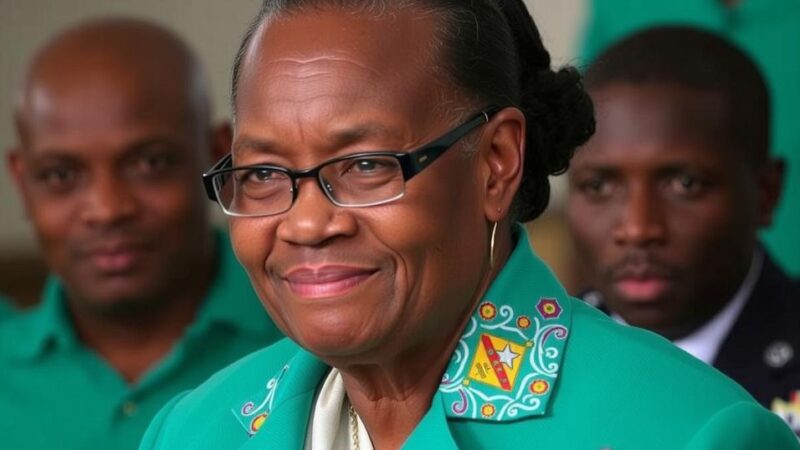Republican Senator JD Vance and Democratic Governor Tim Walz participated in their first and only vice presidential debate just five weeks before Election Day. They discussed critical issues including the Middle East crisis, climate change, and immigration policies, illustrating clear ideological divides. The debate unfolded in a structured environment, focusing on each candidate’s vision for leadership in the face of current national challenges.
The first and only vice presidential debate of the 2024 election, taking place just five weeks before Election Day, featured Republican Senator JD Vance of Ohio and Democratic Governor Tim Walz of Minnesota. The debate opened with a handshake and quickly escalated into significant disagreements on critical issues including the Middle East, climate change, and immigration. The initial topic addressed was the ongoing crisis in the Middle East, particularly the recent missile attack by Iran on Israel. Governor Walz emphasized the importance of “steady leadership” in times of crisis, contrasting it with the recent debate performance of former President Donald Trump, which he deemed irresponsible. In his retort, Senator Vance claimed that Trump’s administration had fostered stability and accused the current administration of facilitating Iran’s aggression through the release of substantial financial resources. The discourse transitioned to climate change, highlighted by the devastating Hurricane Helene. Senator Vance expressed his commitment to prioritizing the needs of American citizens during disasters, promoting a stance of clean air and water while critiquing the Democratic agenda for its overseas manufacturing implications. In contrast, Governor Walz defended his administration’s climate policies, referencing significant investments in renewable energy through the Inflation Reduction Act. The debate also covered immigration policies, with Vance critiquing the Biden administration’s approach for leading to increased illegal immigration and substance trafficking. He argued for a reinstatement of Trump-era border policies, including the construction of the border wall and stricter deportation measures. Scheduled to last 90 minutes, the debate took place in a controlled setting without live audiences, with the candidates responding to questions posed by moderators Norah O’Donnell and Margaret Brennan. Each candidate was granted equal time for their responses and rebuttals, ensuring a structured exchange of ideas.
The vice presidential debate is a strategic event within the American electoral process, particularly significant as it often provides insight into the candidates’ positions on pressing national and international issues. In this particular debate, the candidates focused largely on the ramifications of U.S. foreign policy in the Middle East, implications of climate change, and the critical topic of immigration, reflecting the pivotal topics that candidates must navigate as they vie for electoral support in a divided political climate. With a tight electoral race hinging on key swing states, the arguments presented by Vance and Walz could considerably influence voter perceptions in the lead-up to November’s election.
In conclusion, the vice presidential debate between Senator JD Vance and Governor Tim Walz illustrated stark contrasts in political philosophies concerning international relations, environmental policy, and immigration strategies. As the candidates articulated their visions for America’s future, it became apparent that both parties are not only vying for support but also shaping their platforms in response to the critical issues facing the nation today. The effectiveness of each candidate’s message, particularly regarding leadership competencies and policy solutions, will likely resonate with voters in the upcoming election.
Original Source: www.upi.com







